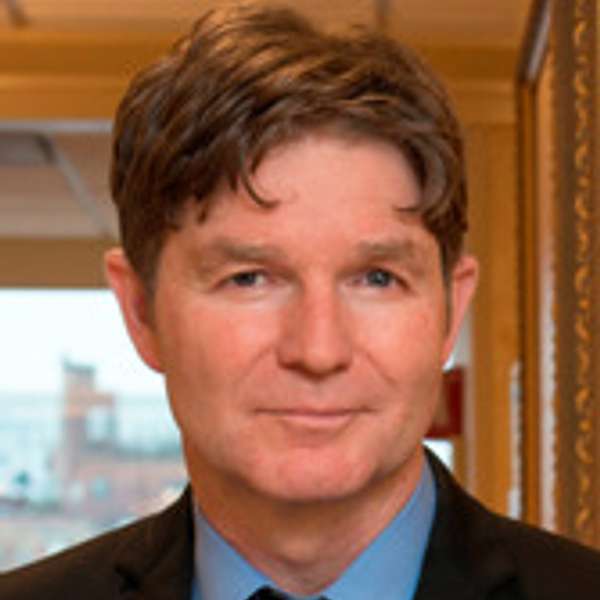
Flourishing After Addiction with Carl Erik Fisher
Addiction psychiatrist and bioethicist Carl Erik Fisher explores addiction and recovery from science to spirituality, from philosophy to politics, and everything in between. He interviews leading experts in areas such as psychology, neurobiology, history, sociology, and more--as well as policy makers, advocates, and people with lived experience.
A core commitment of the show is we need more than medicine to truly understand addiction and recovery. The challenges and mysteries of this field run up against some of the central challenges of human life, like: what makes a life worth living, what are the limits of self control, and how can people and societies change for the better? These are enormous questions, and they need to be approached with humility, but there are also promising ways forward offered by refreshingly unexpected sources.
There are many paths to recovery, and there is tremendous hope for changing the narrative, injecting more nuance into these discussions, and making flourishing in recovery possible for all.
Please check out https://www.carlerikfisher.com to join the newsletter and stay in touch.
Flourishing After Addiction with Carl Erik Fisher
Recovery research: Beyond abstinence, with Dr. John Kelly
How do we best tap into the positive side of recovery, beyond abstinence, sobriety, and remission? What does the science actually show about growing and changing in life after addiction?
There is perhaps no one better equipped to answer those questions than my guest on today’s episode of the Flourishing After Addiction podcast: Dr. John Kelly, Harvard Medical School’s Elizabeth R. Spallin Professor of Psychiatry in Addiction Medicine, and founder and Director of the Recovery Research Institute at the Massachusetts General Hospital. John is a pivotal figure in the world of this research, studying not just what goes wrong and how to stop addictive behavior, but also how people find their pathways and thrive in recovery.
In this episode, we talk about the “active ingredients” or “mechanisms” for recovery, what drives people’s trajectories in recovery, what the research shows about how long it takes to make significant change once someone starts making an effort, and what all this research shows about how to best care for people with addiction and what we must improve in our current treatment system. We also talk a bit about his research on Alcoholics Anonymous and what that shows about the active elements of recovery.
John Kelly, Ph.D., is the Elizabeth R. Spallin Professor of Psychiatry in Addiction Medicine at Harvard Medical School - the first endowed professor in addiction medicine at Harvard. He is also the Founder and Director of the Recovery Research Institute at the Massachusetts General Hospital (MGH), the Associate Director of the Center for Addiction Medicine (CAM) at MGH, and the Program Director of the Addiction Recovery Management Service (ARMS). Dr. Kelly is a former President of the American Psychological Association's (APA) Society of Addiction Psychology, and is a Fellow of the APA and a Diplomate of the American Board of Professional Psychology. He has served as a consultant to U.S. federal agencies and non-federal institutions, as well as foreign governments and the United Nations. Dr. Kelly has published over 200 peer-reviewed articles, reviews, chapters, and books in the field of addiction medicine, and was an author on the U.S. Surgeon General's Report on Alcohol, Drugs, and Health. His clinical and research work has focused on addiction treatment and the recovery process, mechanisms of behavior change, and reducing stigma and discrimination among individuals suffering from addiction. For more on John and his work, go to https://www.recoveryanswers.org.
In this episode:
- A nice blog post by John about the many pathways to recovery.
- "A biaxial formulation of the recovery construct", with remission/abstinence/sobriety on one axis, and the positive consequences of recovery on the other.
- The 2020 Cochrane Review on Alcoholics Anonymous and 12-Step Facilitation Treatments for Alcohol Use Disorder. A summary of that work here.
- many more briefs of research studies available here.
Sign up for my newsletter and immediately receive my own free guide to the many pathways to recovery, as well as regular updates on new interviews, material, and other writings.